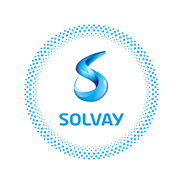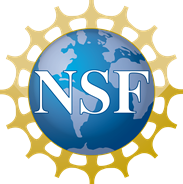
November 26 - December 1, 2023
Boston, Massachusetts
Symposium Supporters
2023 MRS Fall Meeting & Exhibit
Symposium DS02-Automated Experimentation with Synchrotrons, Neutrons and Microscopes
The evolution of physical instrumentation from synchrotron and neutron sources to electron and scanning probe microscopes over the last three decades has revolutionized areas of science ranging from materials and condensed matter physics to chemistry and biochemistry. However, the search for material functionalities using these facilities has, until now, been based on human operators to identify objects of interest and operation. The rapid development of machine learning in the last decade makes it possible to analyze high-dimensional data and control microscopy, synchrotron, and neutron facilities with machine learning methods, a paradigm shift toward automated characterization of materials. Automated experimentation combines the power of machine learning and advanced characterization facilities to explore materials in a higher-throughput, more standardizable, and informed manner, allowing us to better understand traditionally complex concepts in physics. With these developments, we are able to perform many measurements without human intervention and accelerate the discovery process of new physics.
The symposium covers a range of topics related to microscopies, neutrons, and synchrotrons including the development of automated experiments, application of machine learning methods in microscope and diffraction data analysis, development of algorithms for physical science, etc. The goal of this symposium is to bring together researchers across the material science and machine learning communities to foster and accelerate the development of novel techniques for society.
The symposium covers a range of topics related to microscopies, neutrons, and synchrotrons including the development of automated experiments, application of machine learning methods in microscope and diffraction data analysis, development of algorithms for physical science, etc. The goal of this symposium is to bring together researchers across the material science and machine learning communities to foster and accelerate the development of novel techniques for society.
Topics will include:
- Machine learning-driven automated experimentation in microscopy, neutron scattering, and synchrotron sources
- Autonomous experimentation for materials development
- Data-driven discovery and design of materials
- Data-driven modeling, analysis, and control in physical science
- Computer assistance and automation for materials characterization
- Image analysis and pattern recognition methods
- Machine learning models for materials characterization
- Algorithms for diffraction and imaging data
Invited Speakers:
- Keith Brown (Boston University, USA)
- Ivano E. Castelli (Technical University of Denmark, Denmark)
- Sang-Joon Cho (Park Systems, Republic of Korea)
- Jeffrey Donatelli (Lawrence Berkeley National Laboratory, USA)
- Sijia Dong (Northeastern University, USA)
- Adam Foster (Aalto University, Finland)
- Ayana Ghosh (Oak Ridge National Laboratory, USA)
- Sang Soo Han (Korea Institute of Science and Technology, Republic of Korea)
- Sergei Kalinin (The University of Tennessee, Knoxville, USA)
- Young-Min Kim (Sungkyunkwan University, Republic of Korea)
- James LeBeau (Massachusetts Institute of Technology, USA)
- Mingda Li (Massachusetts Institute of Technology, USA)
- Yijin Liu (SLAC National Accelerator Laboratory, USA)
- Sandrine Lyonnard (Commissariat à l’énergie atomique et aux énergies alternatives, France)
- Klaus-Robert Müller (Technische Universität Berlin, Germany)
- Colin Ophus (Lawrence Berkeley National Laboratory, USA)
- Jenna Pope (Pacific Northwest National Laboratory, USA)
- Rama Vasudevan (Oak Ridge National Laboratory, USA)
- Robert A. Wolkow (University of Alberta, Canada)
- Iryna Zenyuk (University of California, Irvine, USA)
- Maxim Ziatdinov (Oak Ridge National Laboratory, USA)
Symposium Organizers
Yongtao Liu
Oak Ridge National Laboratory
Center for Nanophase Materials Sciences
USA
Yunseok Kim
Sungkyunkwan University
School of Advanced Materials Science and Engineering
Republic of Korea
Steven Spurgeon
Pacific Northwest National Laboratory
Energy and Environment Directorate
USA
Daniela Uschizima
Lawrence Berkeley National Laboratory
Applied Mathematics and Computational Research
USA
Topics
autonomous research
ferroelectricity
piezoresponse
scanning electron microscopy (SEM)
scanning probe microscopy (SPM)
strain relationship




-2.tmb-mtg_rel_ad.png?Culture=en&sfvrsn=a4240c09_1)

























